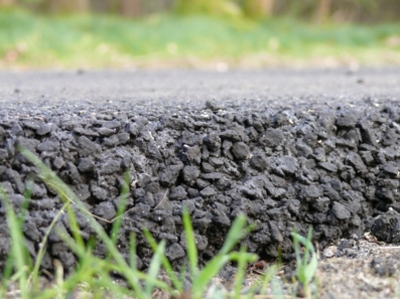Overhaul Your Residential or commercial property's Appeal: Hot Mix Asphalt Paving for Regrading Projects
Overhaul Your Residential or commercial property's Appeal: Hot Mix Asphalt Paving for Regrading Projects
Blog Article
Discovering the Ecological Advantages of Hot Mix Asphalt
The utilization of Hot Mix Asphalt in framework tasks presents a compelling instance for sustainable growth and environmental stewardship. By diving into the complex details of its manufacturing processes and the cutting-edge use of recycled materials, a much deeper understanding arises of how this technology exceeds plain surface applications. The environmental benefits of Hot Mix Asphalt extend far past initial perceptions, providing a nuanced viewpoint on how this material can lead the way for a greener future.

Decreased Greenhouse Gas Emissions
Hot Mix Asphalt production offers a substantial reduction in greenhouse gas discharges contrasted to other pavement materials. The manufacturing procedure of Warm Mix Asphalt entails heating up the combination of aggregate and asphalt binder to high temperature levels. This process requires much less power compared to the manufacturing of alternate sidewalk products, causing lower greenhouse gas exhausts. Furthermore, using recycled products in Warm Mix Asphalt better adds to lowering its environmental influence. By integrating reclaimed asphalt pavement and recycled asphalt tiles into the mix, the requirement for virgin products is reduced, bring about power savings and decreased emissions connected with removal and processing.
Studies have shown that Warm Mix Asphalt sidewalks have a smaller carbon impact over their life process contrasted to other sidewalk options. The toughness and recyclability of Hot Mix Asphalt additionally improve its environmental advantages by minimizing the requirement for frequent upkeep or replacement, consequently preserving resources and minimizing emissions associated with repair tasks.
Energy Efficiency and Conservation
The production process of Hot Mix Asphalt not only minimizes greenhouse gas emissions yet additionally adds significantly to power efficiency and preservation efforts. Energy efficiency is a vital advantage of Warm Mix Asphalt manufacturing contrasted to other pavement types. The process involves heating the materials at heats to develop the asphalt mix, which calls for less energy than different methods. In addition, the capacity to recycle and recycle asphalt pavement even more improves energy conservation. By incorporating redeemed asphalt sidewalk (RAP) right into new mixes, the market saves power that would certainly have been required to create completely brand-new materials. Moreover, the resilience of Warm Mix Asphalt decreases the regularity of upkeep and reconstruction, resulting in long-term energy cost savings. This long life reduces the energy-intensive procedures associated with frequent fixings and substitutes. Overall, Hot Mix Asphalt attracts attention as an eco-friendly choice that focuses on power effectiveness and conservation throughout its lifecycle.
Sustainable Pavement Solutions

One secret facet of sustainable pavement solutions is the usage of recycled products such as reclaimed asphalt sidewalk (RAP) and recycled asphalt roof shingles (RAS) By incorporating these products right into the asphalt combinations, the demand for virgin resources is lowered, leading to reduced power usage and greenhouse gas exhausts during production. In addition, the reuse of these products helps divert waste from land fills, contributing to a much more lasting and circular economic situation.
Additionally, lasting pavement options concentrate on enhancing pavement layout to boost efficiency and long life. Methods such as warm mix asphalt (WMA) and stone mastic asphalt (SMA) boost the resilience and resilience of pavements, decreasing the demand for regular fixings and substitutes. By executing these cutting-edge methods, framework developers can develop sidewalks that not just meet high-performance requirements yet additionally reduce their environmental impact.
Minimized Environmental Impact
Warm mix asphalt, in certain, supplies several advantages that add to decreasing the overall environmental footprint of road infrastructure. One crucial element is the recyclability of asphalt, which can be recycled numerous times without endangering its high quality - Regrading.
Additionally, the manufacturing of warm mix asphalt produces lower degrees of greenhouse gases compared to various other pavement products, making it a much more eco-friendly option. The energy effectiveness of asphalt plants has also improved for many years, leading to lowered gas usage and reduced emissions. In addition, the smooth surface area of warm mix asphalt lowers rolling resistance for vehicles, causing reduced gas consumption and decreased air pollution from car emissions.
Contribution to Environment Modification Reduction
Hot mix asphalt plays a critical function in mitigating environment adjustment through its lasting residential or commercial properties and minimized environmental impact. continue reading this One significant contribution to environment change mitigation comes from the power performance of hot mix asphalt manufacturing. Contrasted to other sidewalk alternatives, the production process for warm mix asphalt takes in less power and gives off reduced degrees of greenhouse gases, thus reducing its total carbon footprint.
In addition, warm mix asphalt's capability to show sunlight, understood as albedo, aids in lowering metropolitan warmth island results. By minimizing warmth absorption and retention, hot mix asphalt sidewalks can decrease the need for air conditioning in metropolitan areas, consequently lowering greenhouse gas emissions related to power usage for cooling down objectives.
Additionally, the resilience and recyclability of warm mix asphalt further improve its environment change mitigation capabilities. Regrading. The long lifespan of asphalt sidewalks reduces the requirement for regular repair services or replacements, inevitably decreasing the carbon discharges linked to roadway maintenance activities. The recyclability of asphalt materials lessens the demand for virgin sources and reduces the environmental influence of pavement building, lining up with sustainable methods for climate adjustment reduction.
Final Thought
In verdict, the environmental advantages of Warm Mix Asphalt show its significant contribution to reducing greenhouse gas exhausts, preserving energy, and decreasing ecological impact. This sustainable sidewalk option lines up with climate modification mitigation efforts, promotes source conservation, and boosts facilities development. By making use of recycled products, energy-efficient production procedures, and durable layout, Hot Mix Asphalt plays an essential role in fostering an extra eco friendly technique to facilities building.
The production process of Hot Mix Asphalt entails warming the mix of accumulation and asphalt binder to high temperature levels. By including redeemed asphalt pavement and recycled asphalt shingles right into the mix, the demand for virgin materials is lowered, leading to energy financial savings see this and decreased discharges connected with extraction and processing.
One trick facet of sustainable sidewalk remedies is the use of recycled materials such as redeemed asphalt sidewalk (RAP) and recycled asphalt tiles (RAS) Methods such as cozy mix asphalt (WMA) and rock mastic asphalt (SMA) improve the sturdiness and durability of sidewalks, minimizing the need for frequent continue reading this repair services and substitutes. Contrasted to other pavement options, the production procedure for hot mix asphalt consumes less power and releases lower degrees of greenhouse gases, thus decreasing its overall carbon impact.
Report this page